Detailed introduction of Tallinn University of Technology:
Introduction and Overview
Geographical location: Located in Tallinn, the capital of Estonia, the campus is about 10 kilometers away from the center of Tallinn, with extremely convenient transportation and only a 15-minute drive from the airport.
Student size: There are about 11,000 students on campus, of which about 1,500 are international students from more than 100 different countries around the world.
Language of instruction: The teaching languages are English, Estonian and Russian.
History and founding date
On September 17, 1918, the Estonian Engineering Society opened an engineering school called Special Engineering Courses, which is considered to be the founding date of Tallinn University of Technology.
In 1919, the school became the private Tallinn Engineering College and was declared a national institution in 1920.
On September 15, 1936, the school was granted university status and named Tallinn Technical College.
In 1938, it was renamed Tallinn University of Technology.
2003 After 1990, the university was called Tallinn University of Technology in English.
On July 1, 2008, Tallinn University of Technology took over the International Audentes University, and its parts except the Law School became part of the Faculty of Economics and Business Administration, while the Law School joined the Faculty of Social Sciences.
In 2014, the Estonian Maritime Academy and Tallinn University of Technology signed a merger agreement.
On November 16, 2016, Tallinn University of Technology and the Estonian Institute of Information Technology signed a merger agreement.
On September 17, 2018, Tallinn University of Technology adopted the new abbreviation TalTech.
School Strength
Faculty: It has 985 academic staff, including 168 international scholars.
Subjects and majors: As the only comprehensive university of technology in Estonia with information technology, business administration and engineering as key disciplines, it has 8 colleges and 10 institutes, with a total of 128 disciplines that can award undergraduate, master's and doctoral degrees. , covering engineering, natural sciences, information technology, business and maritime research.
Research achievements: The school conducts research and develops high-tech applications in many fields, such as organic and analytical chemistry, food biotechnology and neurobiology, geology, power converter research, solar cell materials and friction materials, computer system research and bio-robots, near-zero energy buildings, public management, etc.
Institutional nature
The largest public university of science and technology in Estonia.
Educational philosophy
Committed to cultivating innovative talents who can create and apply new knowledge and new technologies, emphasizing the combination of theoretical knowledge and practical skills, focusing on interdisciplinary education, so that students have the ability to solve complex problems, in order to adapt to the needs of the ever-changing society and the global labor market, and promote Estonia and the world towards a sustainable digital future.
Key laboratories and disciplines
Key laboratories: The school has a number of advanced laboratories, such as the National Laboratory for Materials Testing, which have made important contributions to the development of scientific research and technology in Estonia.
Key disciplines: Information technology, engineering, business administration and other disciplines are in a leading position in Estonia, and its life sciences and social sciences departments are also relatively high in the international rankings, ranking 176-200 and 201-250 respectively. Area.
Departments
The school mainly has the following departments:
School of Engineering: It is the largest school, and its graduates are true engineers, inventors, innovators and leaders who can shape the technology of the future.
School of Information Technology: Two-thirds of Estonia's information technology talents come from this school. The curriculum design combines academic and practical aspects and focuses on the hottest topics at the moment.
School of Science: Focusing on the solutions behind major challenges in the 21st century, such as climate change, environmental protection, carbon neutrality, renewable energy, biodiversity protection, etc., its graduates are expected to contribute to the sustainable future of the earth.
School of Business and Governance: It is the leader in business, economics, econometrics and governance education in Estonia, providing interdisciplinary education that integrates theoretical knowledge and practical skills.
Estonian Maritime Academy: It is the only center of competence of its kind in Estonia, providing multi-level maritime education and conducting professional research.
Rankings
In the 2024 QS World University Rankings, Tallinn University of Technology is in the 651-700 range.
In the 2022 QS Emerging Europe and Central Asia region ranking, it is ranked 38th.
Fees
For English-taught programmes, tuition fees range from €2,300 to €6,000 per academic year, depending on the subject.
EU citizens do not pay tuition fees, except for the School of Business and Governance. Non-EU citizens do, but all degree programmes offer limited tuition fee waivers for outstanding students.
Campus
Campus Facilities: The modern campus is a well-equipped hub located in a picturesque urban area, just 20 minutes by bus from the city centre. The campus has student-friendly accommodation and sports facilities, as well as Tallinn Technology Park Tehnopol, which is home to more than 200 high-tech companies, including Skype.
Campus Life: Campus life is rich and varied, with students able to participate in a variety of academic, cultural and sports activities. The school also combines digitalization with education through projects such as TalTech Digital, aiming to create the most innovative campus in Estonia.
-
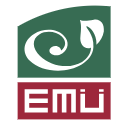
Estonian University of Life Sciences
-
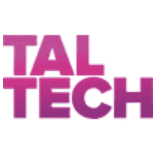
Tallinn University of Technology
-
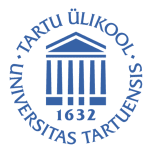
University of Tartu
-

Tallinn University
-
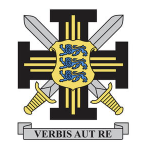
Estonian Academy of Security Sciences
-

Estonian School of Diplomacy
-
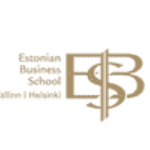
Estonian Business School
-

Estonian Academy of Arts
-
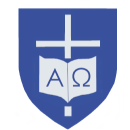
Institute of Theology of the EELC
-
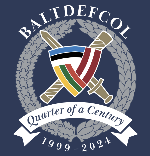
Baltic Defence College
-

Mesoamerican University
-

Istmo University
-

Mariano Galvez University of Guatemala
-

Regional University of Guatemala
-

Galileo University
-

Francisco Marroquín University
-

Rafael Landívar University
-

University of the Valley of Guatemala
-

University of San Carlos of Guatemala
-

Technological Institute of Tlaxcala Plateau
-

Golfo University
-

Technological University of South Sonora
-

Technological University of Huejotzingo
-

Tizimín Institute of Technology
-

Chilpancingo Institute of Technology
